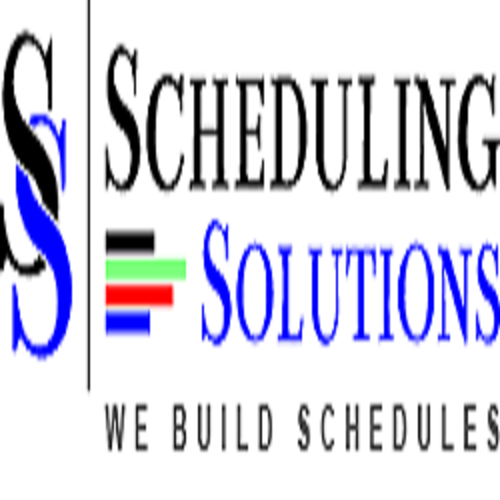Project scheduling solutions are tools, methods, and strategies used to plan, organize, and manage project timelines effectively. They provide structure by breaking down work into manageable tasks, defining dependencies, assigning resources, and establishing deadlines.
These solutions are essential for industries where timelines and budgets are critical, such as construction, engineering, IT, healthcare, and manufacturing.
Why Do Businesses Need Project Scheduling Solutions?
Projects of any size involve multiple tasks, people, and resources. Without scheduling, delays, cost overruns, and missed deliverables become common. Effective project scheduling solutions help businesses:
- Improve time management by ensuring tasks are completed on schedule.
- Enhance productivity through clear task allocation and responsibility.
- Reduce risks by identifying potential delays early.
- Control costs by preventing resource wastage.
- Strengthen communication with stakeholders through transparent reporting.
Key Features of Project Scheduling Solutions
Modern project scheduling solutions combine both technology and management techniques. Their core features include:
1. Task Breakdown
Projects are divided into smaller, manageable activities using a Work Breakdown Structure (WBS). This ensures clarity of scope and responsibilities.
2. Resource Allocation
Assigns the right resources to the right tasks, preventing overloading or underutilization of staff and equipment.
3. Timeline and Gantt Charts
Provides visual timelines that help track progress, dependencies, and milestones.
4. Critical Path Method (CPM)
Identifies the sequence of tasks that determine the minimum project duration, ensuring managers focus on critical activities.
5. Real-Time Progress Tracking
Modern tools allow updates in real-time, keeping stakeholders informed about project performance.
6. Risk and Delay Alerts
Automated alerts flag potential delays or bottlenecks, enabling corrective action before issues escalate.
7. Integration with Other Systems
Many solutions integrate with accounting, HR, and supply chain systems for holistic project management.
Popular Tools for Project Scheduling Solutions
Businesses can choose from a wide range of tools depending on project complexity:
- Primavera P6 – Preferred in large-scale construction and engineering projects.
- Microsoft Project – Widely used for versatile project scheduling.
- Smartsheet – Cloud-based, ideal for collaboration.
- Monday.com and Asana – User-friendly for small to medium projects.
- Trello – Suitable for task-level scheduling in agile teams.
Benefits of Project Scheduling Solutions
Implementing strong project scheduling solutions offers measurable advantages:
- On-Time Delivery – Clear timelines ensure projects finish as planned.
- Cost Efficiency – Prevents wasted resources by optimizing schedules.
- Improved Collaboration – Centralized platforms keep teams aligned.
- Better Forecasting – Data-driven scheduling helps predict future performance.
- Client Satisfaction – Transparency and timely delivery build trust.
Challenges in Project Scheduling
Even with advanced solutions, challenges can arise:
- Inaccurate Estimates – Poor forecasting leads to unrealistic schedules.
- Scope Creep – Additional tasks can disrupt carefully planned timelines.
- Resource Shortages – Lack of skilled staff or materials delays progress.
- Resistance to Technology – Teams may hesitate to adopt new scheduling tools.
Overcoming these requires training, proper baseline data, and stakeholder alignment.
Best Practices for Effective Project Scheduling Solutions
To maximize effectiveness, businesses should adopt proven strategies:
- Define Clear Objectives – Align project goals with organizational strategy.
- Engage Stakeholders Early – Involve clients and team members in planning.
- Use Historical Data – Base estimates on lessons from previous projects.
- Monitor Continuously – Regularly update schedules to reflect real progress.
- Adopt Flexibility – Build buffers for unforeseen delays.
- Leverage Technology – Use advanced tools for automation and integration.
Applications Across Industries
Project scheduling solutions are not limited to one sector. Their adaptability makes them valuable in multiple industries:
- Construction – Ensures labor, equipment, and materials align with tight deadlines.
- IT & Software Development – Supports agile frameworks, sprint planning, and release cycles.
- Manufacturing – Balances production schedules with supply chain logistics.
- Healthcare – Schedules staff, treatments, and facility use efficiently.
- Event Management – Coordinates vendors, venues, and activities smoothly.
Future of Project Scheduling Solutions
The future of project scheduling is shaped by digital transformation. Emerging trends include:
- AI-Powered Scheduling – Predicts delays and recommends optimized resource allocation.
- Cloud-Based Platforms – Enhances collaboration for global project teams.
- Predictive Analytics – Uses historical data to improve forecasting accuracy.
- Automation – Reduces manual inputs and accelerates reporting.
- Mobile Accessibility – Enables real-time updates directly from worksites.
These innovations are making scheduling more dynamic, accurate, and adaptable.
Conclusion
Project scheduling solutions are essential for ensuring projects are completed on time, within budget, and to the required quality standards. By combining structured planning with modern technology, organizations gain clarity, efficiency, and control over their projects.
From construction to IT and healthcare, scheduling solutions streamline processes, reduce risks, and strengthen collaboration. As businesses face increasing complexity, investing in effective project scheduling solutions is no longer optional it is a necessity for success.
Premium IPTV Streaming with Thousands of Live Channels
Truss Exhibits by CoMotion Exhibits: Smart, Scalable & High-Impact Trade Show Solutions
Best Register Company for Foreigners – Complete Business Setup Guide
Corteiz Hoodie: A Symbol of Underground Prestige and Streetwear Royalty
7 Things to Know Before Hiring a Concrete Foundation Contractor
